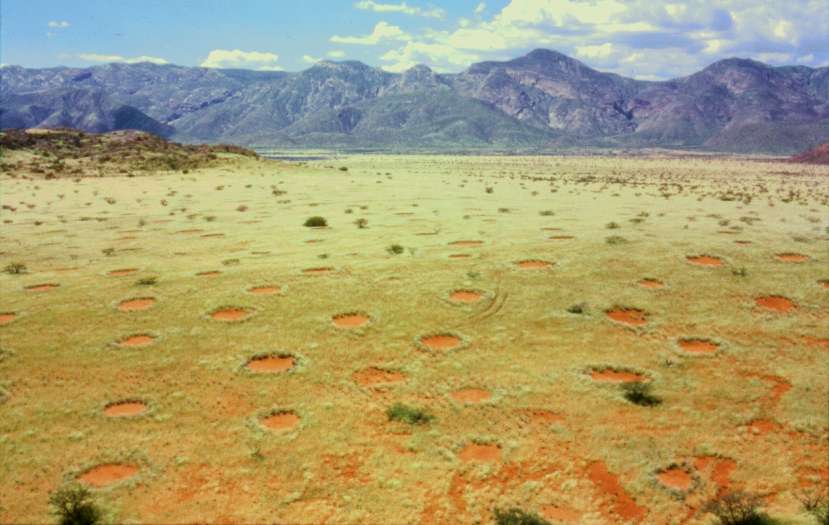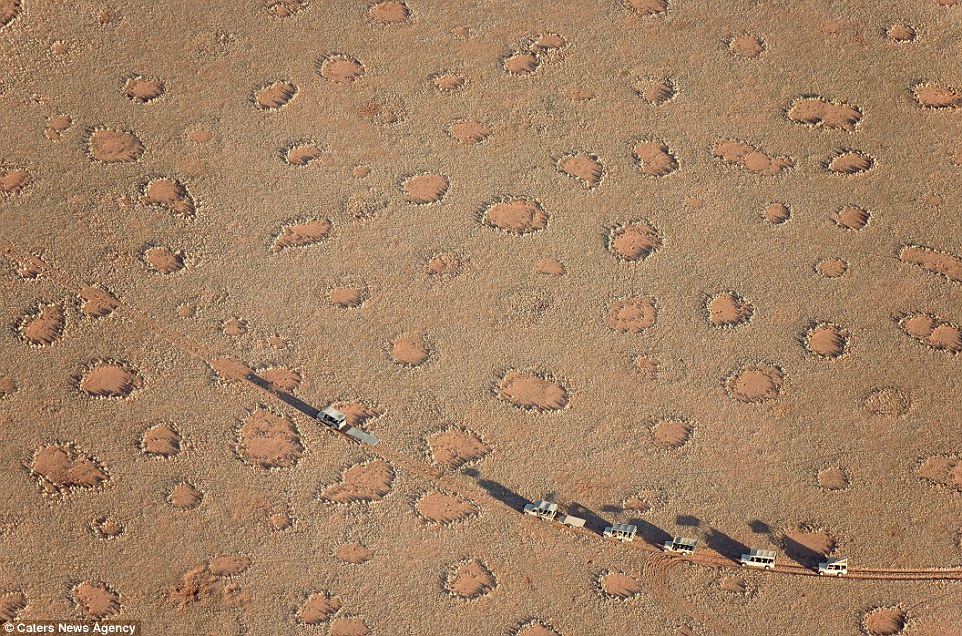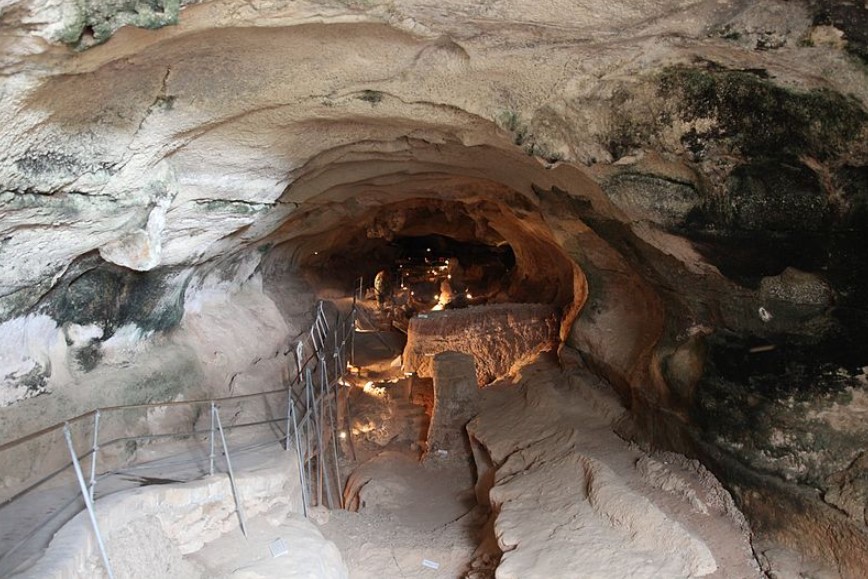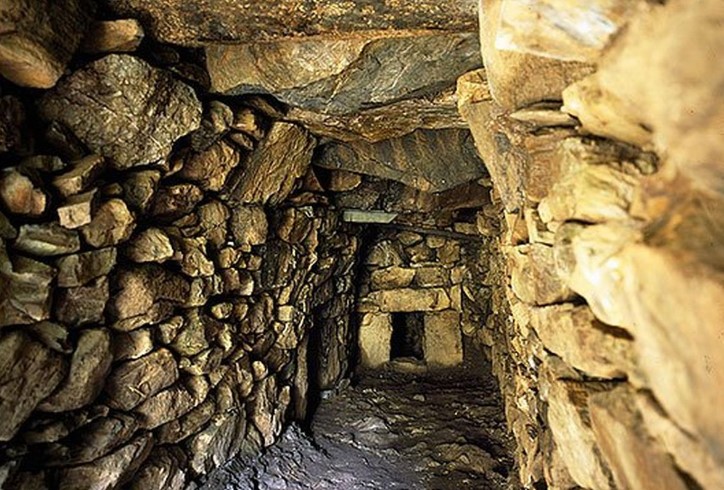Fairy Circles of the Namib Desert – There are strange and mysterious patches in the grasslands of the Namib Desert called “Fairy Circles” in Southern Africa have challenged explanations with hypotheses ranging from ants to termites to grass-killing gas that seeps out of the soil.
Thus, the bird-eye shows, the Namibian desert looks like it has a bad case of chicken pox, well spread across 1,100 miles of a narrow strip sit a smattering of barren polka dots. However, for several decades, a number of theories, from alien invasion to poisonous gasses have been put forth to explain the phenomenon.
In fact, Fairy circles of the Namib Desert have been a long mystery to scientists and it is discovered that small fairy circles last for an average of 24 years, whereas larger circles can stick around for up to 75 years. It is not sure, why the circles form in the first place, or why they disappear. The mysterious fairy rings have many theories for what lies behind the patches of bare earth.
One of them is dragon’s breath, burn marks and dragons living beneath the ground, UFOs, radioactive soil, termites, and competition between the plants for scarce resources of nutrients and water. The Fairy Circles transform the landscape into something more like the surface of the moon.
The Fairy Circles can be 6 to 40 feet in diameter and can be found in the region’s arid grassland on sandy soils. There is ring vegetation around the edge of the ring that is taller than the surrounding grassland. They are one of nature’s greatest mysteries, prompting local legends they are created by Gods and making wild theories about visits by UFOs.
The vast areas are well covered by the mysterious fairy circles that pock the gray desert of Namibia captivating the imaginations of visitors in this region. But now scientists are getting on a series of projects intended at lastly unraveling what causes these strange circles of bare earth to form in their millions.
As scientists had done several theories for the explanation of Fairy Circles, but not conclude on definite reasons yet. Perhaps Termites seem to be the most popular authentic theory. The sand termite species “Psammotermes allocerus” was the most likely suspect for creating the fairy circles.
The insect was the only species constantly present across the 1,200 miles of desert which included the circles. The local peoples are also having different thoughts about fungi, spirits, and even dragon theories. However, it is difficult to form an opinion about something which is still a mystery and investigated for years.
Another activity of termites building nests beneath the ground causes the release of poisonous gas that causes the plants above to die. The pathogenic fungi may be responsible for patches where highly toxic euphorbia bushes grew.
Moreover, the latest theory suggested the circles follow patterns of rainfall and may be caused by competition between plants themselves, with circles of stronger more vibrant grasses sucking nutrients and moisture from the deprived soil in the center and rainfall is an imperative predictor of fairy circles. However, there are many competing theories that have generated fervent factions within the scientific community.
The fairy circles appear in a surprisingly regular hexagonal pattern, almost like a honeycomb. This seems to disregard the idea that belches of poisonous gas from below ground are killing the plants and the role of social insects. Only self-organization is recognized to cause patterns like this at such a large scale.
The vegetation gap expands as competition ensues, and the grass-free zone becomes a reservoir for nutrients and water. With the additional resources, larger grass species are then able to take root at the periphery of the gap, and a stable fairy circle develops.
Scientists have also previously proposed that fairy circles are an example of a “self-organizing vegetation pattern,” which arises from plant interactions. In 2008, researchers developed a mathematical model showing the vegetation patterning of fairy circles could depend on water availability.
Mr. Dressler, 58, from Marbella, Spain, visits three times to this area between 2010 and 2014. He said: I came across this marvel by chance during one of my very first visits. Indeed it was very exciting to fly over the area for the first time. Read More – A Place Where the Namib Desert Meets the Ocean
Source: Dailymail & Discovery News

















